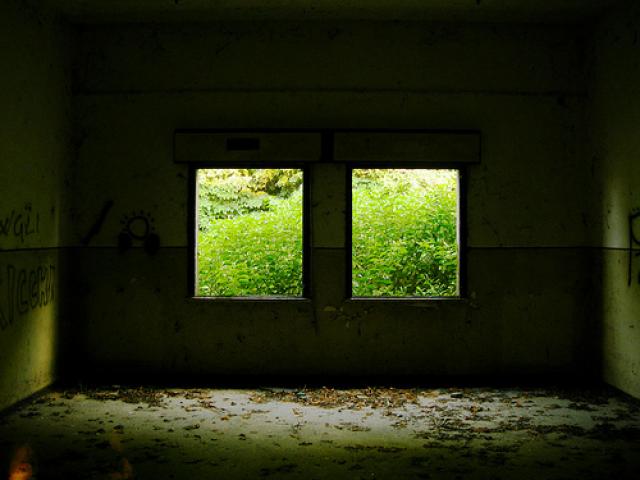
by Filip Stojanovski
Last week, the Macedonian blogosphere buzzed about Greece’s obstruction of Macedonia’s NATO entry. This post presents a set of typical initial reactions to this news.
Filip Petrovski described (MKD) the atmosphere in Macedonia several days before the NATO Summit:
The tension in the air is incredible. The upcoming NATO Summit in Bucharest created a heavy atmosphere of expectation in the region. It is absolutely impossible to predict what will happen there. Expecting closure is already unavoidable part of our lives, of all everyday discussions… I recently observed two friends who had different opinions about Macedonia’s stance on the latest proposal by the mediator Nimetz. I’ve known these two persons for a while, and I have never seen them being nervous, aggressive or intolerant of each other on political or historical issues. But this time it wasn’t so. One of them simply got up and left in the middle of the discussion.
On the night of April 2, upon learning that Greece would stop NATO from reaching a consensus on invitation of new members, dozens of Macedonian bloggers reacted with angry posts.
Some placed pictures of the current Macedonian flag on their sites, while others chose to display (MKD) Macedonia’s 1992-1995 flag, which carried the Vergina Sun symbol and is no longer in use due to Greek objections. Many, including Toast Government (MKD), expressed an opinion that the goal of Greece is to completely negate the Macedonian identity and eradicate the nation. Along with congratulations to Croatia and Albania (MKD), the countries that succeeded in receiving NATO invitations, some bloggers recommended (MKD) that Macedonians unite in the time of a calamity and offered ideas (MKD) to the Macedonian government on how to act in the future.
The next day, there seemed to be more optimism in bloggers’ responses; some included video clips with Macedonian music in their posts. One blogger wrote (MKD) that this was not the “end of the world”:
Since morning, people around me seem possessed by some kind of madness or hysteria. They come and go out of my office, and I hear wailing, sighs, conversations about NATO, […] VETO […] …
I see higher spirits on the blogs, but they seem to slide into it, too. Oh, what shall we do, too bad for our youth, loads of such stuff… Hey, people! You were not this scared when the war started in 2001! Come on, let’s all cry out to heaven and wait for the judgment day. As far as I can see, the Sun rose up again, my house is still in the same place, and the work I have to do is still waiting for me!!!
Zoriv commented (MKD) ironically on the Greek attempts to monopolize the world’s historical heritage, saying that the true heir of Alexander the Great would not show fear that “his country could be invaded by a nation which is five times smaller.”
Anti and Bi (MKD), bloggers who have been promoting principled pacifism for years and advocated Macedonia’s non-involvement in Iraq and Afghanistan, reiterated their stance against participation in military alliances.
Kalina reacted (MKD) to the new breed of skepticism towards NATO and EU integration, pointing out that after the failure at the NATO Summit, some inconsistent analysts, who have never before questioned this long-term strategic objective of the country, started talking that maybe Macedonia should give up trying to gain membership in these international institutions.
Human rights experts Mirjana Najcevska and Zharko Trajanoski (MKD), held the government accountable for failing to fulfill its obligation to provide NATO membership for Macedonia. The latter warned that the huge obstructive force of Greece could not be the sole excuse for all Macedonian failures.
Bazhdardzhijata criticized (MKD) the Macedonian journalists who protested by leaving the press conference of Greek Minister of Foreign Affairs in Bucharest:
I still can’t get over the […] stupidity of these journalists. Instead of staying at the event and bombarding with revealing questions, which would have caught the Greek fascist policies with their pants down, they decided to leave. And the way they left! They did not make any noise, they just turned their backs on them. After such a departure, I am sure Dora [Bakoyannis] sincerely and silently thanked them.
In the following days, some Macedonian bloggers realized how important it was to communicate about these issue with the world and started publishing more English-language posts.
VBB used historical examples to emphasize that Greek arguments were unsustainable:
[…] There’s an island called Ireland. Because of historical reasons similar to those described above, that geographical region became divided between the Republic of Ireland (an independent state like the Republic of Macedonia) and Northern Ireland, a constituent unit of another country – the United Kingdom (similar case as the Greek province of Macedonia). The British crown has imposed harsh measures on its Irish possessions […]. Basically its the same story as with Greece. However, the difference is that, today the UK does not demand from the Republic of Ireland to change its constitutional name. […]
Taking into account the role that politics plays in Macedonia’s daily life, it is quite possible that NATO integration will remain one of the hottest political subjects for Macedonian bloggers in the near future.

Leave Your Comments